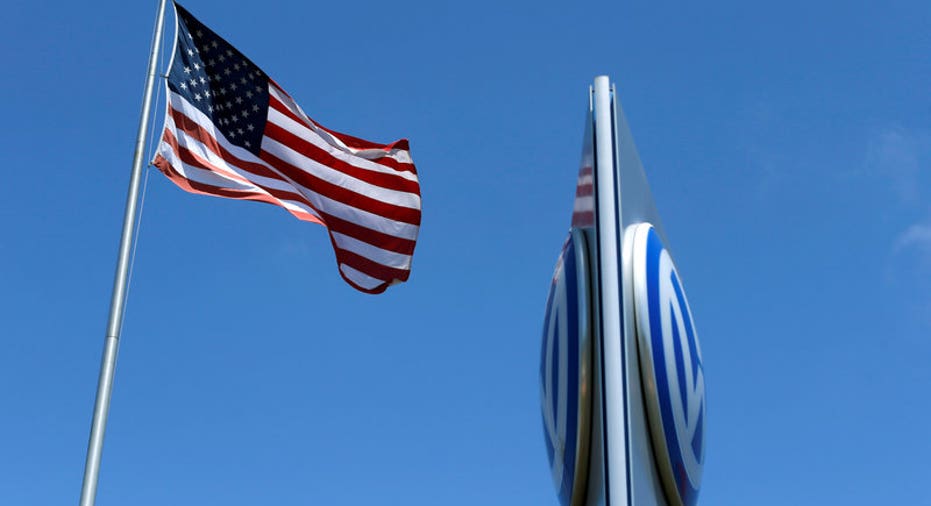VW plots return to relevance in US following diesel scandal

Volkswagen is rolling out its plan for re-selling most of the cars involved in the German automaker's diesel emissions cheating scandal.
Volkswagen brand head Herbert Diess told reporters after a board meeting at Volkswagen's lone U.S. plant in Tennessee on Thursday that the fallout from the scandal "is something we need to live with" as the company seeks to regain relevance and market share in the United States.
"The brand suffered a lot worldwide, we are suffering still," he said. "And for sure we are not through."
It has been more than a year since Volkswagen agreed to pay more than $20 billion to settle criminal charges and civil claims related to the company's sale of nearly 600,000 cars with "defeat devices" designed to beat U.S. emissions tests.
The first batch of retrofitted vehicles includes new 2015 models that went unsold following the cheating revelations. Dealers who received diesels as part of Volkswagen's buyback program will get the right of first refusal for those vehicles as they enter the used market, said Hinrich J. Woebcken, head of Volkswagen Group of America.
"After that, there are several channels to remarket them in a controlled way, so they don't come all at once to the market," he said. "We want to ensure the residual (resale) values of those cars remain stable."
Higher-mileage and more heavily used vehicles will be scrapped.
The management meeting in Chattanooga comes as Volkswagen ramps up production of the new seven-seat Atlas SUV, the best example so far of the company's shift away from its small car roots and part of renewed efforts to become a volume brand in the U.S. The goal is to grow market share from below 2 percent to more than 5 percent, Diess said.
"It's a long term plan, we can't win America over in two years' time," Diess said. "It's a 10-year plan, but we are committed."
To get to 5 percent, VW would have to pass Lexus, Mercedes-Benz, Dodge, Ram, Subaru, GMC, Hyundai, Kia and Jeep. All of those brands had less than 5 percent market share as of July 31.
Volkswagen has confirmed it will introduce an electric version of its iconic microbus in 2022, but no decision has been made about where to build it. VW minibuses haven't been sold in the U.S. since the 1970s, but a prototype of the new version was met with great excitement when Diess showed it off in California last month.
"We have a beautiful heritage with ups and downs, and we have the dreadful history now of the past two years, which was a very difficult period for us," Diess said. "But we think that we get a second chance from the American customers."
Any additional U.S. production beyond the Atlas and the Passat sedan would be accommodated at the site of Volkswagen's existing plant in Chattanooga.
"We wouldn't need a new plant," he said. "This plant still has a lot of capacity, and we want to fill that."
Volkwagen's U.S. plans don't include a pickup truck.
"It would be a very risky move, because American players are so strong," he said. "We would have to invent something really special, and it's not really Volkswagen's heritage."
Volkswagen's plans involve giving more flexibility to the North American region to tailor vehicles to local demands. Matthias Erb, the chief engineering officer for Volkswagen's North American region, said the decentralization of decision-making represents "an unbelievable shift in the culture" at the company long known to be slow to recognize American desires such as cup holders and other creature comforts.
Erb said one example of the new approach was the local decision to call the new SUV the Atlas in North America — it is sold under the Teramont name in other markets.
"We renamed it," he said. "Five years ago, we would have been fired."



















